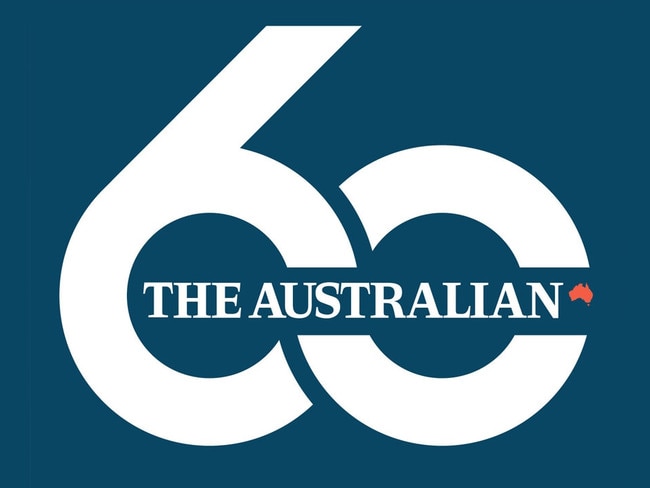Why journalism still matters: When facts are in the eye of the beholder
Decline of objective reporting and rise of ideological spin make good journalism harder but more important.

I asked a Russian journalist working in Moscow recently how much he could push the truth when reporting on the Ukraine war. “We can go halfway between what we know is happening and what the official line is,” he replied, referring to the censorship imposed by Vladimir Putin. “But we try to write the truth as much as we can even if we risk getting in trouble.”
This answer reminded me why journalism is more important than ever and will continue to be so. With democracy in retreat in many parts of the world and despots cracking down on a free media, a growing number of journalists in these countries are risking their lives and their livelihoods just to try to tell the real story free of spin and censorship.
Fortunately in Western democracies journalists do not face a life-and-death drama just to report the news. But in these countries another media battle is being played out that strikes at the heart of our profession, making good journalism both more difficult and more important.
In Western media, especially in the US, facts and truth increasingly are under siege from opinion makers and ideologues who will argue with a straight face that black is white.

I was The Australian’s Washington correspondent during the Trump White House, which coined the term “alternative facts” to explain Donald Trump’s frequent mistruths on numerous issues, culminating in the Big Lie that he was robbed of the 2020 election.
Facts have become a contested space like never before and routinely are treated as subjective rather than objective. Opinion and ideology increasingly are blurring boundaries, leaving behind the traditional, fact-based, reported pieces that include quotes from both sides of the argument and allow readers to draw their own conclusions.
The fact 57 per cent of Republican voters in the US still believe Trump won the 2020 presidential election shows how people increasingly are willing to believe what they want to, regardless of objective facts.
The mugshot of Trump released after his fourth indictment in Georgia was depicted as a shameful symbol of a fallen president or a rallying cry against a rigged Washington, with precious little middle ground between these opinions.

The challenges to journalism right now come from both sides of politics, not just those on the conservative right who believe conspiracy theories. Many on the liberal left increasingly are willing to support an uncomfortable level of censorship in the media – a cancel culture that opposes the airing of contrary views rather than allowing robust discussion.
In Australia, many on the left have expressed intolerance and often outright hostility to hearing alternative views on topics such as the Indigenous voice, climate change or transgender issues.
The slow decline of objective, fact-based reporting has been more than offset by an explosion of opinion pieces that fill not only mainstream media but also a plethora of blogs, websites and social media.
As Kevin Coyne, from New York’s Columbia Journalism School puts it: “The column – 800 words of story, voice, idea and opinion – has always been the three-minute pop song of our business, the marquee form of journalism. It has become an essential building block of the web: the blog, the posting, the musing, the reflection, the anecdote, the kind of brief essay that requires minimal scrolling.”
There is nothing wrong with opinion, but its growing dominance over fact-based reporting further distorts the ability of people to hear both sides of an argument, as opposed to reading only the opinion with which they agree.

As such, we’ve seen a growing ideological cleavage in the media with networks, newspapers and online sites increasingly catering for a conservative or a liberal audience with less and less political or ideological middle ground.
And then there is the business challenge of how journalism can best navigate the myriad challenges posed by the internet, paywalls, online clickbait versus investigative reports and the failing business models for rural and regional newspapers.
On top of this, journalists these days also must navigate an explosion of media relations spin doctors and increased government secrecy to get the story.
All these challenges make good journalism harder, but in my view they make it more important than ever. And, despite all of this, good journalism is thriving and making more of a difference than ever.
It will continue to thrive because, ultimately, people want and need journalism that keeps governments, institutions, business and people accountable.
In Australia it is media scrutiny that triggers most royal commissions, such as those held into banks and institutions guilty of child sex abuse.
More recently, media scrutiny and headlines like “The Lying Kangaroo” exposed Qantas’s shabby customer performance and helped force change that benefited all travellers.
Public hunger for the truth has not dimmed, even if the truth seems more contestable to some.
More than ever, good journalism is needed to inform, educate, advocate and call out falsehoods.
Take, for example, journalist Hedley Thomas’s investigation into the failings of Queensland’s DNA testing laboratory, which exposed the fact numerous crimes were not being prosecuted.
Or his dogged pursuit of Chris Dawson, who finally was convicted in 2022 for the murder of his wife Lyn. Or take the investigation by Nick McKenzie and Chris Masters into the war crimes of Victoria Cross winner Ben Roberts-Smith. And, more recently, there are the revelations by Greg Bearup about white people interfering in the painting of Indigenous art, a series that has turned the art world on its head.
In my role as deputy chairman of the Walkley judging board, I see first-hand the quality of the best journalism in the country, and it’s getting better with each passing year. The real-life impact of many of these stories is profound.
In this increasingly polarised world where facts are often in the eye of the beholder, this is the sort of journalism that gives us hope.
And that is why good journalism only will grow in importance in the years ahead.
More than ever good journalism is needed to inform, educate, advocate and call out falsehoods.


To join the conversation, please log in. Don't have an account? Register
Join the conversation, you are commenting as Logout